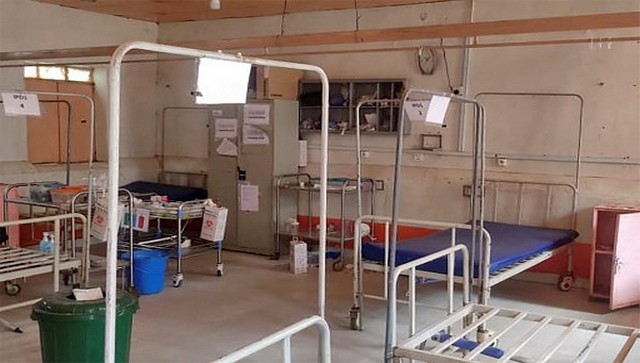With the war in Sudan waging on for a second week now, the UN has warned that the country’s already troubled healthcare sector is facing a risk of “disaster”. The health sector in Sudan, a UN World Health Organization official said, was already in crisis and “was extremely fragile.” Ahmed al-Mandhari, WHO regional director for the eastern Mediterranea told AFP that with all the bombed hospitals, paucity of medicines and doctors fleeing the country for safety, the poverty-stricken nation now is in a “disaster in every sense of the word.” Mandhari added that the risk of the spread of diseases like cholera and malaria are higher than ever. The battles raging in Sudan have pitted the Sudanese Armed Forces led by Abdel Fattah al-Burhan against the powerful paramilitary Rapid Support Forces of his deputy-turned-rival Mohamed Hamdan Daglo. More than 500 people have been killed and nearly 5,000 injured, according to official figures, but the real toll is feared to be much higher. Mandhari said that only 16 per cent of the hospitals in Khartoum are now fully functional and that there is a “real shortage in medical staff… especially specialised medical staff, for example in surgery and in anaesthesia”. The most vulnerable among the lot are pregnant women about four million sick and 50,000 children suffering from acute malnutrition who will no longer receive vital care. “There are approximately three million women or girls who are exposed to various types of… gender-based violence”, including sexual violence, he said, adding that children face “psychological pressures” from conflict and displacement. Malaria is endemic in Sudan and could spread when the rainy season starts in the coming weeks, he said, also warning of the threat of a cholera outbreak as clean water becomes increasingly sparse. With inputs from agencies Read all the Latest News , Trending News , Cricket News , Bollywood News , India News and Entertainment News here. Follow us on Facebook_,_ Twitter and Instagram_._
The UN official said that only 16 per cent of the hospitals in Khartoum are now fully functional and that there is a real shortage in medical staff… especially specialised medical staff, for example in surgery and in anaesthesia
Advertisement
End of Article


)

)
)
)
)
)
)
)
)



